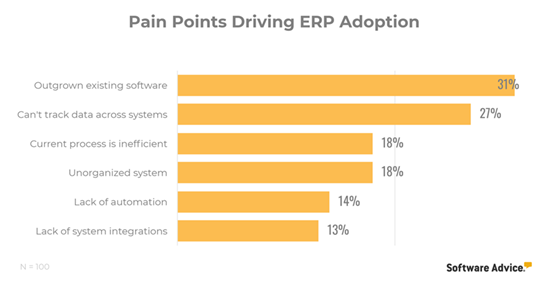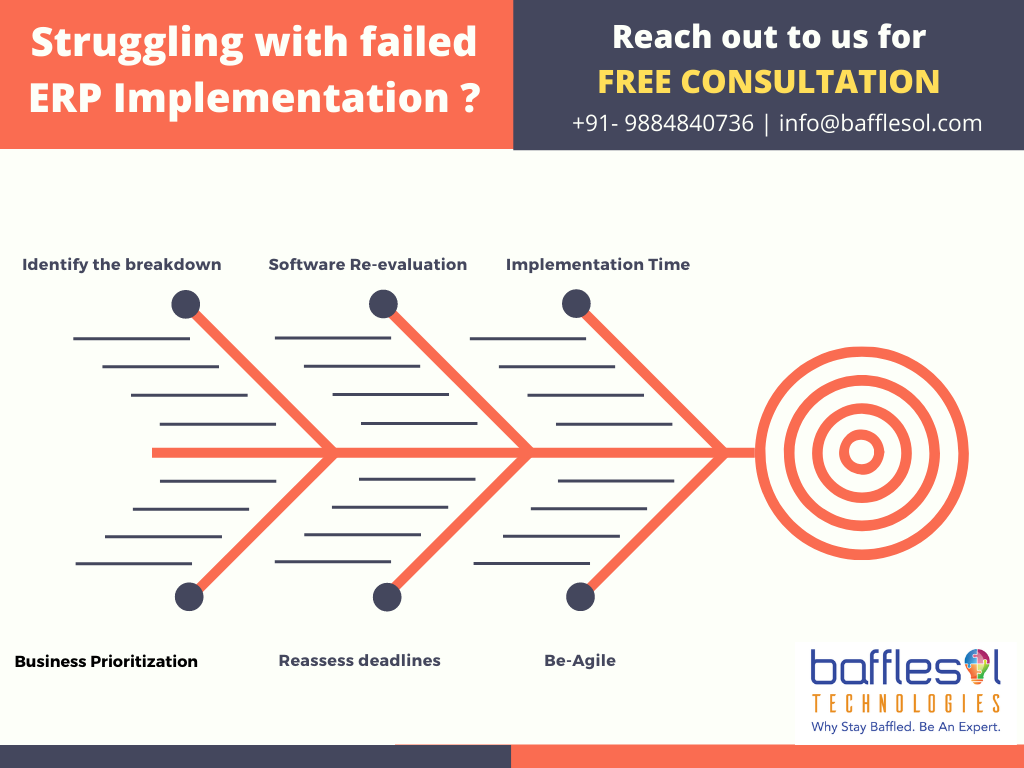ERP is an integrated solution that helps the seamless flow of information across the company by connecting various disparate systems like finance, accounting, supply chain, human resources. Given the complexity of the system, a wide range of processes involved, it is very likely that ERP failures happen. and can be very disheartening when it happens.
Any organization adopts ERP for the following reasons —

The pain is real, at times ERP implementations fail!! But businesses are supposed to go on even if they hit a roadblock and, you need to recover fast from such failures. Here are a few tips, that can help you recover and reverse a failed implementation –
- Software Re-evaluation — You must ensure and re-verify that all the assumptions, scenarios considered while choosing an ERP are valid. While this might help you find an immediate culprit but a lot of times the processes, change management, and team acts as a catalyst for failure.
- Implementation Time — Don’t plan your Go-Live date basis your wish list, A lot of times companies struggle to create scheduling plans with a busy season ahead. These unprepared systems then fail to meet peak demand when users are not only fully trained on the new systems, workflows, and processes
- Business Prioritization — Over years one of the major observations is the companies lack a long-term vision of business requirements and their priorities. It needs the right mix of leadership, change management, prioritization, and understanding market needs. Have an initial vision, the end goal to be clear, and everyone involved by making it specific, measurable, and achievable.
- Reassess deadlines — After an unsuccessful attempt, drill down on the system and give yourself measurable yet achievable goals to be implemented. A clear and well thought of timeline where an ample amount of time factored in for all scenarios including user training will give your project team motivation and a direction to get the problem curve flattened out.
- Be Agile — Always have time or process-based objectives in play for your plan of action to roll back or stop mid-way if things are seemingly going south. This will save a lot of overburden of redoing stuff and then you can rework on the strategy again to do things better.
ERP implementation is a difficult journey to be on. Between change management, training, processes, and adoption practices, there is a risk that your software won’t do as promised or would not have humps. Since ERP is often so integral to a company’s day to day operations, a failure cost and impact more.
It can be a long and laborious process to recover from ERP implementation failure, but it’s a necessary job that must be done to make it right!!
I talk this from our own experiences of helping such companies on a regular basis, and such things are bound to happen. So, if you think you need help beginning an ERP implementation or are worried that your ERP software might be going wrong, reach out to me for a pro-bono consultation.



